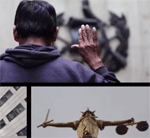Published on Mon, 2014-06-16 00:00
There is almost no dispute that the worst performance of all Millennium Development Goals (MDGs) was registered on MDG 8, the Global Partnership for Development. The impending deliberations to shape the post-2015 development agenda offers a high level political opportunity to correct that imbalance. For that, it is important to avoid treading the same path of the MDG approach. The initial blueprint for the MDGs entirely neglected mention of the means of implementation necessary in the form of international support. Since it was clear that developing countries would never get on board with an agenda that would harshly judge their progress in improving certain quantifiable indicators without correlative commitments of financial support to help achieve them, one more goal was added, and this was Goal 8 on the Global Partnership. Accepting this approach condoned the methodological nonsense of putting means of implementation as a category equivalent to the goals they should serve. It condemned finance for development to the constraints of a format that required simplified, succinct, one-size-fits-all statements that could never capture the breadth, complexity and diversity needed for development finance to work. |
Published on Fri, 2014-06-13 20:28
The Post-2015 Human Rights Caucus was born in 2013 as a cross-constituency coalition of development, environment, trade union, feminist and human rights organizations worldwide to lay out a roadmap for embedding human rights into the core of the post-2015 sustainable development agenda. As the Open Working Group’s (OWG) efforts near completion and the full-blown political negotiations begin, the Post-2015 Human Rights Caucus has developed this Litmus Test to be used to evaluate whether proposals for the post-2015 framework respect and reflect pre-existing human rights norms, standards and commitments, in line with the Rio+20 agreement that sustainable development goals be “consistent with international law”. This series of questions and criteria not only clearly articulate our bottom-line expectations for the outcomes of the post-2015 sustainable development process, but also provides a unique tool for all those involved to more objectively assess whether post-2015 proposals truly encapsulate what the UN Secretary General envisioned as “a far-reaching vision of the future firmly anchored in human rights.” |
Published on Thu, 2014-06-12 21:46
The Arab NGO Network for Development (ANND) hosted the European Investment Bank (EIB) Vice President, Mr. Philippe de Fontaine Vive along with a team of EIB staff and representatives of the EU delegation to Lebanon on June 10th. The meeting brought together representatives of Lebanese Civil Society and international organizations working in Lebanon. ANND's work and monitoring of the EIB's involvement in the region prompted such a meeting. Since 2005, we could see a change in the EIB policies, which has chosen as interlocutor private local banks with three different measures. The first one enters in the micro-credit process to "facilitate households' access to credit", the second one consists in the implementation of private investment funds for the SMEs and the last one consists to negotiate directly with the local private banks on projects to finance SMEs from specific sectors. |
Published on Thu, 2014-06-12 19:03
The International Council for Adult Education (ICAE) is glad to announce the launch of the call for applications of the eighth edition of the ICAE Academy of Lifelong Learning Advocacy (IALLA), that will be held in the Arab Region, from October 13 to 26, 2014 in Madaba, Jordan. |
Published on Thu, 2014-06-05 13:19
Only through financial reform can human rights be sustained. The Center of Concern provides this video for your use in classes, meetings, and other community organizing opportunities to educate viewers regarding the need for financial policy makers to be held accountable to those in marginalized situations and poverty. The brief video stimulates new ways of thinking about equality and social justice and its inextricable linkage to financial systems. The program recommends actions that each of us can and should take to address changes in local and global financial systems to promote and sustain equality and human dignity throughout society. |
SUSCRIBE TO OUR NEWSLETTER







